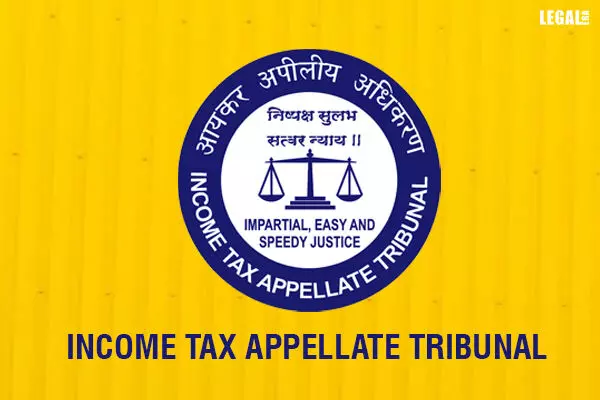- Home
- News
- Articles+
- Aerospace
- Artificial Intelligence
- Agriculture
- Alternate Dispute Resolution
- Arbitration & Mediation
- Banking and Finance
- Bankruptcy
- Book Review
- Bribery & Corruption
- Commercial Litigation
- Competition Law
- Conference Reports
- Consumer Products
- Contract
- Corporate Governance
- Corporate Law
- Covid-19
- Cryptocurrency
- Cybersecurity
- Data Protection
- Defence
- Digital Economy
- E-commerce
- Employment Law
- Energy and Natural Resources
- Entertainment and Sports Law
- Environmental Law
- Environmental, Social, and Governance
- Foreign Direct Investment
- Food and Beverage
- Gaming
- Health Care
- IBC Diaries
- In Focus
- Inclusion & Diversity
- Insurance Law
- Intellectual Property
- International Law
- IP & Tech Era
- Know the Law
- Labour Laws
- Law & Policy and Regulation
- Litigation
- Litigation Funding
- Manufacturing
- Mergers & Acquisitions
- NFTs
- Privacy
- Private Equity
- Project Finance
- Real Estate
- Risk and Compliance
- Student Corner
- Take On Board
- Tax
- Technology Media and Telecom
- Tributes
- Viewpoint
- Zoom In
- Law Firms
- In-House
- Rankings
- E-Magazine
- Legal Era TV
- Events
- Middle East
- Africa
- News
- Articles
- Aerospace
- Artificial Intelligence
- Agriculture
- Alternate Dispute Resolution
- Arbitration & Mediation
- Banking and Finance
- Bankruptcy
- Book Review
- Bribery & Corruption
- Commercial Litigation
- Competition Law
- Conference Reports
- Consumer Products
- Contract
- Corporate Governance
- Corporate Law
- Covid-19
- Cryptocurrency
- Cybersecurity
- Data Protection
- Defence
- Digital Economy
- E-commerce
- Employment Law
- Energy and Natural Resources
- Entertainment and Sports Law
- Environmental Law
- Environmental, Social, and Governance
- Foreign Direct Investment
- Food and Beverage
- Gaming
- Health Care
- IBC Diaries
- In Focus
- Inclusion & Diversity
- Insurance Law
- Intellectual Property
- International Law
- IP & Tech Era
- Know the Law
- Labour Laws
- Law & Policy and Regulation
- Litigation
- Litigation Funding
- Manufacturing
- Mergers & Acquisitions
- NFTs
- Privacy
- Private Equity
- Project Finance
- Real Estate
- Risk and Compliance
- Student Corner
- Take On Board
- Tax
- Technology Media and Telecom
- Tributes
- Viewpoint
- Zoom In
- Law Firms
- In-House
- Rankings
- E-Magazine
- Legal Era TV
- Events
- Middle East
- Africa
ITAT: To Avail Income Tax Deduction Employers Must Deposit Employees Contribution Towards PF/ESI within the Date Stipulated under Respective Acts

ITAT: To Avail Income Tax Deduction Employers Must Deposit Employees Contribution Towards PF/ESI within the Date Stipulated under Respective Acts
The Income Tax Appellate Tribunal (ITAT), Delhi by its two-member bench of Narender Kumar Choudhry (Judicial Member) and Anil Chaturvedi (Accountant Member) observed that Income Tax Deduction shall only be allowed in cases where Employers have deposited Employee’s contribution towards Provident Fund/ Employees' State Insurance Corporation within the date stipulated under the respective acts.
In the present case, the appellant/Assessee- The National Housing Bank, is a financial institution engaged in the business of providing long-term finance for the construction or purchase of houses in India for residential purposes.
Assessee filed its original return of income on 31.10.2019 for A.Y. 2019-20 declaring total income of Rs.11,42,86,93,010. In the intimation issued under Section 143(1) of the Income Tax Act, 1961 (the Act) by Centralized Processing Centre (CPC), Bangalore, the total income was determined at Rs.11,43,03,92,370.
Aggrieved by the intimation issued under Section143(1) of the Act, assessee carried the matter before Commissioner of Income Tax (Appeals) [CIT(A)] who vide its order dismissed the appeal of the assessee. Aggrieved by the order of CIT(A), assessee filed an appeal before the ITAT.
The primary grievance raised by the assessee was that the additions made on account of delay in deposit of employee’s contribution towards provident fund and ESI fund by the Assessing Officer (AO) and upheld by CIT(A).
The assessee submitted that CIT(A) was not justified in upholding the action of AO whereby the adjustment of Rs.16,99,358/- was made on account of delayed deposit of employees share of Provident Fund and Employee State Insurance dues as the same was deposited before the due date of filing of the return of income under Section 139(1) of the Act.
He further submitted that CIT(A) was not justified in making the addition as the aforesaid addition does not fall within the purview of Section 143(1) as it was a debatable issue.
The issue that came up for consideration before the ITAT was with respect to the disallowance of delayed deposit of employee’s contribution of Provident Fund (PF) and Employees' State Insurance Corporation (ESI) in the intimation passed under Section 143(1) of the Act.
In this regard, the ITAT referred the decision passed by the Supreme Court in the case of Checkmate Services Pvt. Ltd. and others vs. CIT and others (2022), wherein it was held that the contribution by the employees to the relevant funds is the employer’s income under Section 2(24)(x) of the Act and the deduction for the same can be allowed only if such amount is deposited in the employee’s account in the relevant fund before the date stipulated under the respective Acts.
Thus, the ITAT opined that the deduction under Section36 (1)(va) of the Act can be allowed only if the employees’ share in the relevant funds is deposited by the employer before the due date stipulated in respective Acts.
Accordingly, the ITAT dismissed the appeal.



